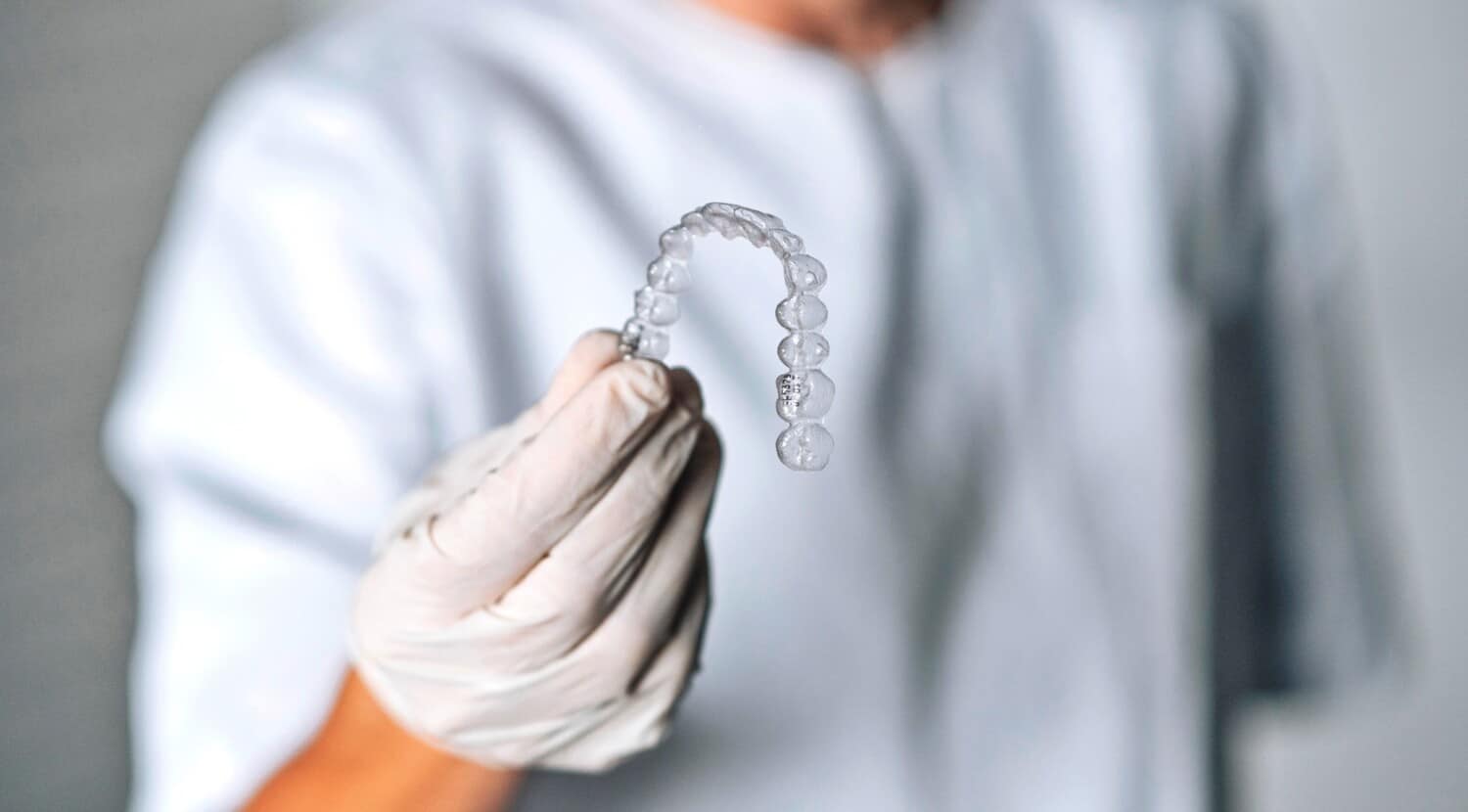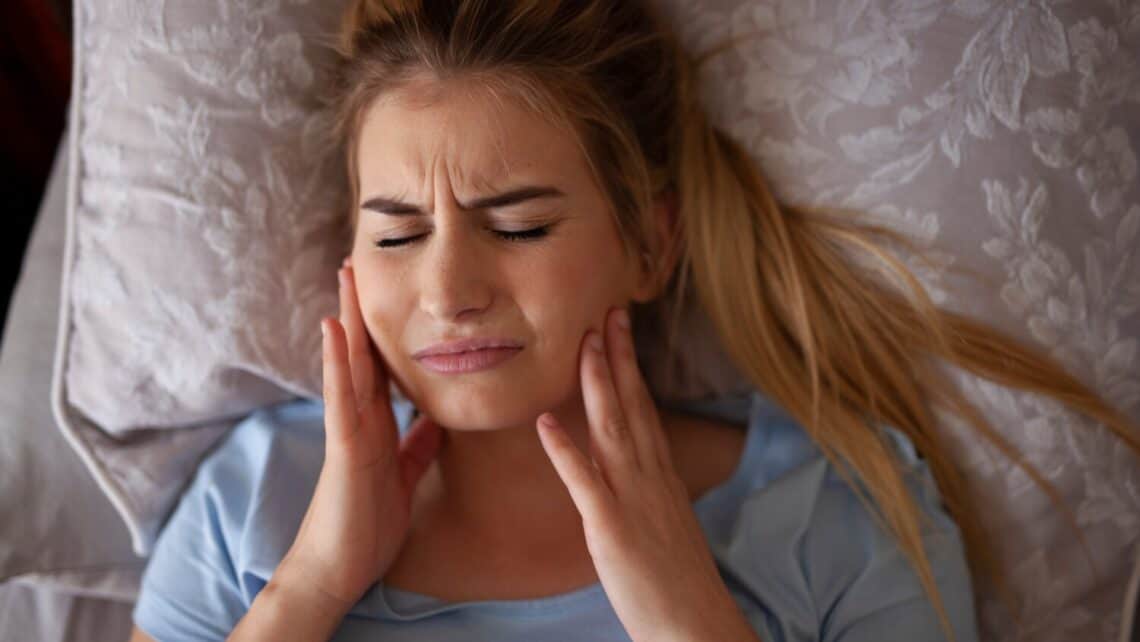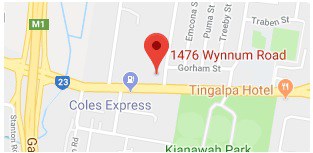According to Scott Davis, the vice president of the Australian Dental Association, teeth grinding has increased internationally. Scott Davis quotes as per the ABC, “We believe it may very well be associated with increased stress and anxiety because of the pandemic, financial situations, job security and all of those factors”. Read the full article here.
So, what is teeth grinding and how can you limit the damage it may do to your teeth?
Teeth grinding or bruxism as it is known by its technical term is involuntary clenching, grinding and gnashing of the teeth that usually happens during sleep. Sleep bruxism is considered a sleep-related movement disorder. People who clench or grind their teeth during sleep are more likely to have other sleep disorders, such as snoring and pauses in breathing.
It is easier to notice teeth grinding in children because adults can hear the sound of children grinding their teeth when asleep. However, children’s teeth and jaws change and grow, so unless they carry the habit into teens, most will outgrow it as they get older.
It is difficult to notice teeth grinding in adults because the person does not realise that they grind their teeth in their sleep. If the partner is a light sleeper, they may hear or get disturbed by the grinding noises at night and often can be the first to notice the problem.

What are the signs and symptoms of teeth grinding?
Some of the signs and symptoms of teeth grinding can include:
- Fractured, chipped teeth or excessive wear
- A dull headache, sore jaws and/or ear pain, particularly in the morning after waking up
- Aching or stiffness in the jaws while eating
- Temperature sensitive teeth to hot or cold
- Sore jaw muscles due to intense jaw clenching
- Multiple cracked or broken fillings
- Loose teeth
What are the causes of teeth grinding?
Teeth grinding maybe related to both physical and psychological stressors. Some of the causes may include:
- Stress and anxiety
- Alcohol
- Smoking
- Caffeine
- Snoring
- Obstructive sleep apnoea
- Drugs including antidepressants (SSRIs, SNRIs), antipsychotics, amphetamines (methamphetamine, MDMA), cocaine
How can teeth grinding be managed?
According to dentists, teeth grinding although common, can be a multifaceted problem issue that may require more than just a trip to the dentist. As one dentist puts it, “It is tricky and sometimes you don’t even know there’s a problem until you break a tooth off or get a toothache from grinding the enamel off your teeth.”

One of the important steps to manage teeth grinding is to check if the patient is suffering from stress and anxiety. While there have been multiple attempts to determine treatment for teeth grinding, there is no definite evidence to confirm what works and what does not. However, an effective way to manage teeth griding is to wear splints or mouth guards (at night). If your dentists determines that stress may be a factor, you might ask your dentists to recommend stress counselling, seeing a physical therapist, or prescribe muscle.
Some of the options to help manage teeth grinding are:
- Avoid or reduce caffeine rich foods and drinks such as coffee, colas and chocolate
- Avoid alcohol. Teeth grinding tends to increase after consuming alcohol
- Avoid chewing on non-food items such as pencils or pens. Also avoid chewing gum because it allows your jaw muscles to get more used to clenching and makes you more likely to grind your teeth
- Train yourself not to clench or grind your teeth. If you notice that you clench or grind during the day, position the tip of your tongue between your teeth which helps to train your jaw muscles to relax
- Relax your jaw muscles at night by holding a warm washcloth against your cheek in front of your earlobe
Teeth grinding can be due a variety of reasons, so if you experience some of these signs or symptoms, it is best to consult a dentist for an initial examination.
Want to book an appointment?
Book an appointment online by clicking here. Call our friendly team on 3390 6100 or email us.












Leave a Comment